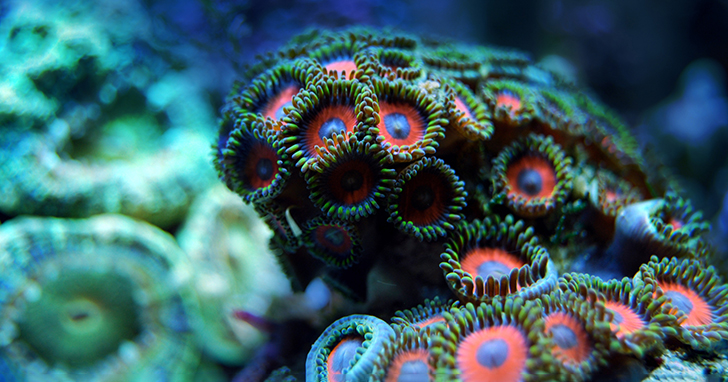
The Importance of Regular Calcium TestingMuch too often, many reef hobbyists quit testing calcium levels once a regimen for supplementing calcium has been established. However, calcium supplementation is not a static process. It is part of an ever-changing organic process where the demand for calcium increases as coral colonies (both soft and stony), coralline algae, and other marine invertebrates that actively utilize calcium begin to grow and spread. Larger amounts of calcium are required to sustain this healthy growth. Do calcium levels increase as your aquarium ages?
Calcium requirements tend to increase in most reef aquariums as they grow and mature. As a result, your old supplementation regimen may no longer be adequate. If regular testing is not performed to monitor calcium levels, it is extremely easy to allow levels to drop precipitously. In reef aquariums heavily stocked with corals and invertebrates, it is crucial that calcium levels be assessed every two weeks; or even better, once a week. Alkalinity should also be measured and monitored since there is a relationship between calcium and alkalinity levels. What is the relationship between calcium and alkalinity?
If calcium levels get too high (over 500 ppm), there is a tendency for alkalinity to drop, affecting the buffering capacity of your aquarium water. Without adequate buffering, pH levels become susceptible to fluctuations. Conversely, if alkalinity gets too high, calcium levels will tend to fall as calcium precipitates out of solution in the form of insoluble calcium carbonate, also causing pH fluctuations. Ideally, calcium levels should be between 400 and 450 ppm, while the alkalinity should be between 2.5-3.5 meq/L (7-10 dKH). Several reliable testing kits are available to help measure and monitor calcium levels. There are also testing devices for measuring alkalinity. How often should I check calcium levels?
It is important to monitor calcium and alkalinity levels weekly and supplement accordingly to keep them at proper levels. Low calcium levels negatively affect the growth, health, and coloration of corals. What little growth that may occur result in thin, spindly branches lacking vivid coloration. Related Articles
|
|
|




